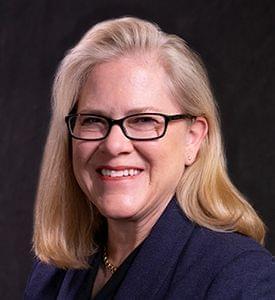Cy Pres Relief and The Supreme Court (Rebroadcast)

University of Illinois College of Law's Jennifer Pahre University of Illinois College of Law
Equifax must pay hundreds of millions in connection with a class-action settlement following a vast consumer data breach. Claimants will get money, or have the option of free credit monitoring.
Class action lawsuits combines similar claims from many plaintiffs for efficient management. Special rules govern their management, and their resolution.
The Supreme Court recently accepted a case, Frank v. Gaos, to address a unique feature of class action settlements. After consideration, however, the Court sent the case back to the lower court. This may not appear to change the legal landscape. But because the Court did not rule on the merits in this case, class action lawsuits can continue to be resolved without any direct compensation going to the plaintiff class members.
Of course, the main goal of civil litigation is to restore the wronged party to the rightful position. Ideally, all settlement funds go to compensate people who have been harmed. But sometimes, in class actions, that is not possible. And that’s where a special legal remedy, called “cy pres,” comes in.
Cy pres is from the French phrase Cy-Près Comme Possible, “As near as possible.” The phrase and the remedy were borrowed from the law of charitable trusts. When the original goal of a trust becomes impossible, cy pres allows a court to amend its terms, so that the original goal can still be fulfilled, as near as possible.
For example, let’s say someone established a scholarship for students who wished to study fluid dynamics in the Department of Aerospace Engineering at a certain fine university. But then, let’s say that the university closed its fluid dynamics lab. A court could decide that the money should simply go to students in the Department of Aerospace Engineering. Then, the money would still go where the donor wanted it to go, as near as possible.
In litigation, the cy pres remedy has only been used in may not be identified, or may not come forward. Or, individual damages may be too small to justify the expense of a payout. In these cases, courts have permitted
And now, back to that Supreme Court case, Frank v. Gaos. Google violated federal law by sharing user search content. A class action settlement required Google to pay millions in damages. But none of the money would go to absent class members. Instead, the court approved a cy pres award that distributed all the funds to institutions studying internet privacy.
The Supreme Court accepted the case, but then sent it back so the lower court could decide whether the plaintiffs had the right to bring it in the first place.
Justice Thomas dissented. He believed that a cy pres settlement that extinguishes the rights of absent plaintiffs without giving them anything is unfair.
But is getting rid of cy pres the answer?
If we do that, what happens to extra settlement money? It should not go back to the wrongdoers; that would be a windfall that rewards misbehavior.
What about giving the money legal aid organizations? In Illinois, by statute, a major portion of unclaimed class action settlement funds must go to legal services providers. But is this the right approach? What about other charities?
And what about restorative justice? The cy pres remedy offers great flexibility. Why not use it, and get as close as possible to addressing the core wrong?
Alexander Hamilton once said, “The first duty of society is justice.” Finding justice in every case is the perpetual work of our courts, using all the tools at their disposal – including, at least for now, cy pres, even where plaintiffs get no money.
